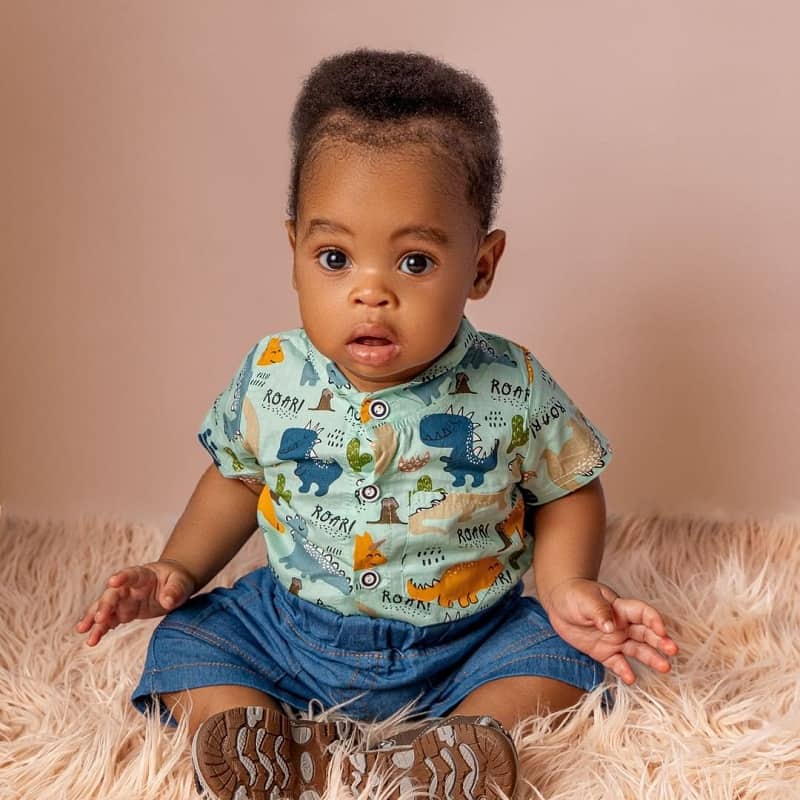

Some agencies are also moving toward a uniform cost system where all adoptive parents would pay the same fees. In that system, lower-income families pay less to adopt.
Black baby boy skin#
Now, some states and agencies are using a different formula to make adoption more affordable for families, with a sliding scale based on income rather than skin color. The fees typically cover administrative costs, but also costs associated with taking care of the mother, like travel, rent, health care and counseling services. In other words, Norris explains, there are often altruistic reasons for the discrepancy - "but people who work in adoption say there's one more reason, quite simply: It's supply and demand." So the cost is adjusted to provide an incentive for families that might otherwise be locked out of adoption due to cost, as well as "for families who really have to, maybe have a little bit of prodding to think about adopting across racial lines." Non-white children, and black children, in particular, are harder to place in adoptive homes, Norris says. We discovered that this is not widely talked about, but it is common, Norris tells NPR's David Greene. The Race Card Project spoke with social workers, adoption agencies and adoptive parents about adoption costs based on ethnicity. There's going to be a lot of work on our end in order to be successful parents and to get our child ready for this world." "That's when I started realizing that, OK, being a parent to a child of a different ethnic background - this is gonna be some work. "And I remember hearing this and just sort of being dumbfounded that they would sort of segregate - to use a loaded term - segregate these children by ethnic background before they were even in this world," Lantz says. The group no longer posts this information to the public and asked to remain anonymous. This fee structure has been common for some time throughout the adoption system. The original page appeared on the website for an adoption consulting group that links potential parents with adoption agencies. But they were concerned by what they discovered about the differential costs.Ī screen grab detailing the race-based cost differential for children being placed by various agencies. When they finally decided to turn to adoption they were willing to adopt kids of another race. The couple had struggled for years to conceive a child.

Lantz and her husband, both white, are the adoptive parents of two African-American boys.

Her six words: "Navigating world as transracial adopted family." Other contributors have also addressed the skin-color based fee structure for many adoptions, including Caryn Lantz of Minneapolis. That intersection of race and adoption has prompted many people to submit their six words to The Race Card Project, including this submission from a Louisiana woman: " Black babies cost less to adopt." And as the nation has become increasingly diverse, and with the growth of international adoption in recent decades, many of those children don't look like their adoptive parents. You can find hundreds of six-word submissions and submit your own at Americans adopt thousands of children each year. Every so often NPR Host/Special Correspondent Michele Norris will dip into those six-word stories to explore issues surrounding race and cultural identity for Morning Edition.
Black baby boy series#
NPR continues a series of conversations about The Race Card Project, where thousands of people have submitted their thoughts on race and cultural identity in six words. They ultimately went with an adoption in which the fee was based on their income, not skin color. Caryn Lantz and her husband Chuck were surprised to learn that costs associated with adopting black children were much lower than for white or mixed race children.


 0 kommentar(er)
0 kommentar(er)
